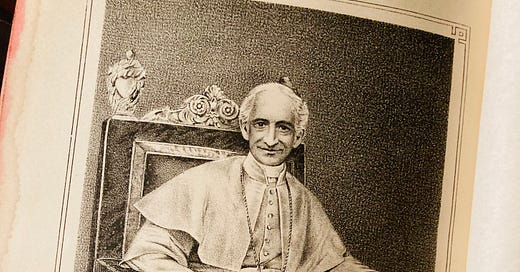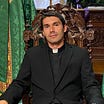The national election season is here and Catholics are bracing for political tirades delivered by their local parish priest. This is most egregious when he urges that there is only one morally acceptable candidate or party to vote for during his homily. Political preaching doesn’t happen often: Pew Research writes that 14% of church goers heard their clergy openly support or denounce a candidate during the 2016 election season. Lay friends complain to me about priests who are clearly partisan in their preaching. In my experience, some priests promote their personal ideology outside of Mass, through their teaching, pastoral conversations, and online presence.
Regardless of his particular political persuasion, a priest who preaches about his personal political opinions is incontrovertibly cringe. Why do priests do this? A charitable interpretation is that the priest feels that it is his duty as a shepherd to tell people how to vote; he’ll be answerable for the state of his flock’s souls at the Last Judgment. Rather than imposing his personal ideological predilections on the laity, the priest ought to help form the laity’s consciences. Doing so fosters the gifts that the laity bring and helps them learn what are most appropriate actions to take in light of the Catholic faith.
To better understand the relationship between the priesthood and politics, it would help to consider: the Church’s role in politics, the nature of conscience, and the nature of politics.
The Church
The United States bishops are clear about the role of the Church in elections:
Our purpose is to help Catholics form their consciences in accordance with God’s truth. We recognize that the responsibility to make choices in political life rests with each individual in light of a properly formed conscience, and that participation goes well beyond casting a vote in a particular election.
The Church does not claim to tell people how to vote. Rather, it seeks to disseminate what Catholic social teaching has to say about current political issues. A priest telling people how to vote contradicts how the USCCB defines the role of the Church in political life.1
Also, it undermines the role of the homily at Mass. Preaching is part of worship, whose locus is Divine Revelation and how it speaks to the concrete lives of the congregation. The homily is meant to inspire the desire for the transcendent.
Priestly partisan political promotion also risks clericalism: The priest sets himself up as having special knowledge and expertise outside of the spiritual realm that must be heeded by the laity. Pope Francis says clericalism “enslaves God’s holy and faithful people.” The priest telling the laity how to vote demonstrates the lack of trust he has in the virtue and prudence of the laity. A more fitting approach is to foster the gifts of the laity by helping them form their conscience according to the faith and morals of the Church. Vatican II promoted the lay vocation, as described by Lumen Gentium:
But the laity, by their very vocation, seek the kingdom of God by engaging in temporal affairs and by ordering them according to the plan of God...They are called there by God that by exercising their proper function and led by the spirit of the Gospel they may work for the sanctification of the world from within as leaven.
A priest promoting a political agenda oversteps his ecclesial role and does not support the lay vocation. Even before Lumen Gentium was promulgated, the prolific theologian Hans Urs von Balthasar insisted that now is the time of the laity:
The future of the Church (and today she has the greatest opportunities) depends on whether laymen can be found who live out of the unbroken power of the Gospel and are willing to shape the world. It is obvious to everyone who sees clearly that the clergy and the Orders can no longer suffice for this. They are not at fault; rather, the cause lies in the irresistible process whereby the world has been maturing since the middle ages, with an ever clearer distinction between the civitas terrena and the civitas Dei (such as we find sanctioned in the definitions of the First Vatican Council, for example).
The laity clearly have an important vocation within the church. Von Balthasar wrote this in 1952, well ahead of Vatican II. The future is with the laity. We see the fruit of the council through the many lay associations that have formed. Examples include: Community of the Beatitudes, Focolare, Neocatechumenal Way, Sant’Egidio, Opus Dei, and Communion and Liberation.
Thus, the priest can best serve the laity by preaching, teaching, and pastoral conversations aimed at forming the conscience. Though, what exactly is conscience?
Conscience
There are many definitions of conscience on the internet given by socials and mutuals. Most of it is bosh. For a robust description of conscience (and its postmodern counterfeit), Reinhard Hütter’s account is the one to read. Conscience is an essential aspect of our personhood and is given to us by God. It allows the person to intellectually evaluate a concrete, particular action in light of the natural moral law. Con-scientia is “knowing together” the first principles of moral truth with the concrete action. The first precept is deduced from first principles about what is to be done: Do good, avoid evil. The person evaluates whether to act or not in light of this. This does not automatically render the person able to make the right decision. Ignorance, imprudence, or habituation to vice are defects that hinder the conscience.
This is where the priest is able to assume his proper role in formation of the conscience. At his ordination, the bishop asks the man to be ordained: “Do you resolve to exercise the ministry of the word worthily and wisely, preaching the Gospel and teaching the Catholic faith?” Offering guidance in conscience formation for the faithful aligns with this promise to the bishop. The priest ought to offer counsel to the laity. The authority given to him in virtue of his ordination and the years of study in philosophy and theology means he is qualified to offer counsel. Preaching at Mass about the conscience is one way of offering counsel. Group talks and one on one conversations are also ways to offer counsel. Personal study and prayerful reflection on the part of the individual person are also essential for proper formation of the conscience.
What must the priest offer counsel on in regards to the political? Catholic social teaching provides a wealth of knowledge for reflection and guidance on what kind practical political action to take. Core themes to understand in Catholic social teaching include: human dignity, the common good, solidarity, and subsidiarity. The consideration of these themes gives guidance on issues such as abortion, euthanasia, immigration, capital punishment, and climate change.
A properly working conscience allows the person to discern what is the right action to take (or refrain from). John Henry Cardinal Newman gives an example of the conscience working properly:
Were I...a soldier or a sailor in her Majesty’s service, and sent to take part in a war which I could not in my conscience see to be unjust, and should the Pope suddenly bid all Catholic soldiers and sailors to retire from the service... taking the advice of others, as best as I could, I should not obey him.
As Hütter describes Newman’s position, the pope is not infallible concerning particular political judgements. If the pope is not infallible concerning politics, even less so is the parish priest. An informed conscience might direct the person to act contrary to the stance of the pope. Yet, when it concerns faith and morals, the pope teaches infallibly and is owed “the assent of faith.” This is why formation for the conscience is crucial.
Research, assessment, prayer, and counsel are needed to arrive at deciding how to vote. Now, regarding voting, the nature of politics itself deserves consideration.
The Nature of Politics
Here’s my hot take: We need to have spiritual detachment from politics in our current age. Don’t get me wrong, people should care about and participate in democracy: We are all called to work for justice in our communities. At the same time, it ought to be preached that the ends of government are distinct from the ends of religion. The culture, media, and news cycles conflate the two to imply that salvation is wrapped up in the State. For Christians, our salvation is not wrapped up in the State, contrary to what a Hegelian or a Marxist believes. Some people treat voting as the eighth sacrament. (Or the only sacrament). Jesus did not say “Blessed are you who vote.” Voting is important, but it will not bring you beatitude.
Detachment is also needed because the political situation is in constant flux. We cannot be assured of which parties, candidates, and policies align more with Catholic social teaching compared to others. Clear examples are demonstrated by the change in both major parties’ platforms: pro-life language was forcibly removed from the Republican party platform. Also, the Democratic Party removed opposition to the death penalty on the party platform. Pope Francis weighed in on the U.S. elections, criticizing Kamala Harris for her support of abortion and Donald Trump on being anti-migrant. Political positions and platforms are constantly shifting.
What’s the role of the priest in regards to the nature of politics? He is to remind people through his preaching and life that there are bigger things than the government. This is essential for the formation of the conscience. Partisan political agendas tend to forget the actual nature of politics. Mass is about worshiping God, and preaching is about making the message of Scripture known. Scripture is clear about the role of politics in life. When Pontius Pilate questions Jesus about his kingdom, Jesus responds: “My kingdom does not belong to this world.” (John 18:36). The kingdom that Jesus establishes in our world is communion with God. All are invited into this. At the same time, Jesus’ kingdom does not originate from this world. It transcends our fallen, fluctuating, temporal reality. The priest ought to remind all about the kingdom that Jesus reveals.
And so…
The partisan and ideological concerns of a priest hinders the lay vocation. Instead, he ought to inform people about Catholic social teaching and how this touches on political issues. This aids the formation of consciences and allows the laity to discern and act. The lay vocation is most effective in fostering a peaceful and just society–which can take the form of voting, but can also take the form of involvement in local politics, civic organizations, and in one’s own neighborhood. Priests best get on board with supporting this and stop trying to replace the faithful’s consciences
It’s also wrong for other reasons. For instance, the Internal Revenue Service restricts tax-exempt organizations, churches included, from participating in elections. A priest endorsing parties or candidates risks the tax-exempt status of his diocese.





